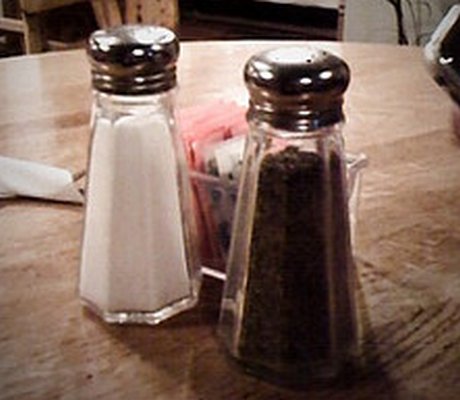What is chloride?
Along with potassium, sodium and calcium, one of the main essential minerals in the blood is chloride. So what is chloride and what does it do? Well, this mineral helps in keeping the fluid amount in balance—both that are inside and outside of cells. Chloride is also known to maintain proper blood pressure, blood volume, and is involved in the maintenance of the pH of body fluids.
The element chlorine is basically a type of gas that is poisonous and is soluble in water. In the human body as well as in nature, chloride exists primarily as the negatively charged ions (chloride anion) that joins with cations like hydrogen to form hydrochloric acid, which is also known as stomach acid; as well as with sodium to make sodium chloride or table salt.
The body is made up of 0.15% of chloride; this is mostly found in the cells, particularly in the red blood cells.
Chloride is known to be a mineral electrolyte that closely works with sodium and water in helping the proper distribution of fluids in the body.
Chloride can be absorbed easily by the small intestines and can be eliminated from the body through the kidneys. In certain instances, kidneys retain chloride as part of the regulation of the acid-base balance in the body. This mineral, along with sodium is also released in perspiration. Large amounts of chloride, sodium and even potassium can be released through heavy sweating.
This mineral travels with water and sodium and aids in generating the osmotic pressure of the fluids in the body. Aside from an essential factor in maintaining the body’s acid-base balance, chloride is also a vital constituent of the stomach hydrochloric acid (HCL), or simply the digestive acid. This can also be helpful when it comes to the clearing process of wastes products made by the liver.
In another use, several water-treatment plants are using chlorine gas as an agent in killing microorganisms in water.
Foods with Chloride
Salt—whether sea salt or table — is the primary source of chloride, although it can also be found in foods such as kelp, dulse, rye, olives, tomatoes, lettuce, celery and others.

Chloride Deficiency
Chloride deficiency can lead to vomiting, diarrhea, and sweating. It can also cause metabolic alkalosis, wherein the body fluids become too alkaline, urinary potassium loss, and low fluid volume. Such can lead to problems that are related to the acid-base balance.
Sodium Chloride Related Problems
People who are suffering from high blood pressure, kidney disease or heart failure can benefit from having a decreased consumption of salt as well as foods that are rich in sodium chloride. The body has its own way in regulating the concentration of sodium, wherein eating lots of sodium chloride leads to an increase in the concentration of sodium.
In order to for this sodium concentration to go back to its normal level, the body can choose either of the two options: hold onto more water in order for the sodium chloride to be diluted in the blood, or excrete the excessive sodium through urine. The first option can make one feel bloated, and can also increase blood pressure, as there is now more material in the blood vessel system.
High blood pressure can cause various damages to the body, one such symptom is progressive kidney damage. This happens because of the continuous beat of the heart and higher blood pressure causes the blood to hit the kidney tubules with too much force.
Damaged kidneys lose their ability to excrete more salt or chlorine through urine, which means that the body needs to hold more water in order to dilute the sodium concentration. Increased volume will increase the blood pressure thus, damaging the kidneys even more.
References and further reading
Salt photograph by Jonbro; Wikipedia; Linus Pauling Innstitute; Georgia State University; University of Maryland Medical Center.

